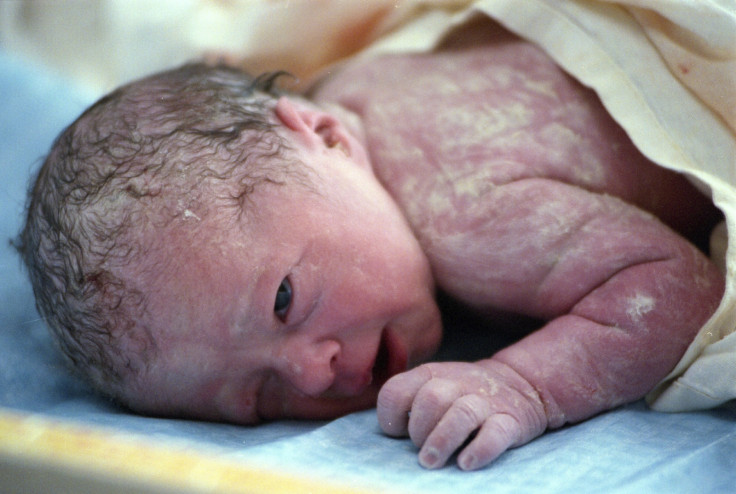Myth busted: Scientists show eating placenta has no health benefits in humans

Eating placenta after giving birth has no health benefits, such as protecting against postpartum depression, easing pain, boosting energy or aiding lactation, a study has found.
Instead, scientists say there may be unknown risks to both mother and child as women "don't know what they are ingesting".
Publishing their report in the Archives of Women's Mental Health, researchers from Northwestern Medicine looked at 10 current published research studies about the practice of eating placenta – or placentophagy.
The practice of eating placenta has spiked in recent years after celebrities, such as Kourtney Kardashian, said it provides health benefits.
Corresponding study author Crystal Clark said: "The popularity has spiked in the last few years. Our sense is that people aren't making this decision based on science or talking with physicians. Some women are making this based on media reports, blogs and websites."
Findings showed there was no evidence to support claims that eating placenta, be it cooked, raw or encapsulated, offers protection against the perceived health benefits – some people suggest that it also promotes skin elasticity, replenishes iron and enhances maternal bonding.
Placenta is a filter that protects the developing foetus from toxins and pollutants. Non-human adults regularly eat it after giving birth – but the authors are keen to note any research on the health benefits in animals does not necessarily translate to humans.
"There are a lot of subjective reports from women who perceived benefits, but there hasn't been any systematic research investigating the benefits or the risk of placenta ingestion," Clark said. "The studies on mice aren't translatable into human benefits."
Furthermore, Clark says there is no research into the risks of placentophagy. "Our sense is that women choosing placentophagy, who may otherwise be very careful about what they are putting into their bodies during pregnancy and nursing, are willing to ingest something without evidence of its benefits and, more importantly, of its potential risks to themselves and their nursing infants.
"There are no regulations as to how the placenta is stored and prepared, and the dosing is inconsistent. Women really don't know what they are ingesting."
The authors conclude that more research is needed into placentophagy and any potential risk or benefits, but until then they hope their work will increase awareness so mothers-to-be can get proper information from their doctors about the practice.
They conclude: "Despite the amount of information available to the public on the therapeutic benefits of placentophagy, there is no scientific evidence examining its effects in humans, and the data from animals are inconclusive.
"The health benefits and risks of placentophagy warrant further investigation of the retained contents of the raw, cooked, and encapsulated placenta. The impact of placenta consumption on the postpartum woman and nursing infant remains to be elucidated, and health care professionals should be aware of the literature to support patients in their decision-making."
Commenting on the findings, Louise Silverton, Director for Midwifery at the Royal College of Midwives, said there is no evidence for or against eating placenta.
"As a result midwives will not advise women about eating their placenta because of this lack of evidence, and it must be the woman's choice if she chooses to do so," she said. "Women should be aware that like any foodstuff, placentas can go off, so care will be needed about how they are stored.
"If woman is intending to do this they should discuss it with their midwife ahead of the birth so that arrangements can be made to ensure she gets her placenta."
© Copyright IBTimes 2025. All rights reserved.






















